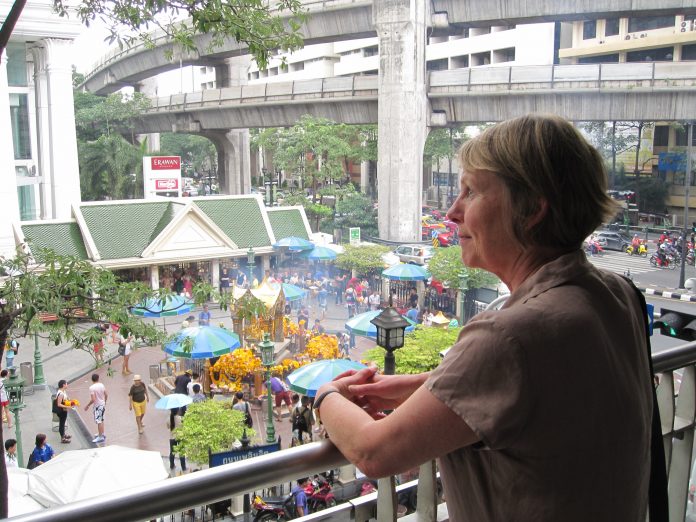Anyone buying a mobile phone SIM card in Thailand now must be fingerprinted or have their faces scanned, an initiative touted as improving security but one that has privacy advocates alarmed.
Supakarn Boonjan of the National Broadcasting and Telecommunications Commission, told a news conference at the Loaf Bakery & Café in Pattaya March 4 that the last phase of the new SIM card registration process – applicable to postpaid customers – went into effect Feb. 1.
The new regulation now requires both Thais and foreigners to supply biometric information – either fingerprints or facial scans – when buying a new SIM card. The rule came into effect for prepaid phone users – who previously could buy a SIM card anonymously – in December and was expanded to postpaid contracts last month.
An NBTC spokesman said in November that the government also wants anyone who bought a SIM card prior to December also register, but has not figured out how to do so yet.The government touts the new registration process as a way to improve both physical and financial security. Biometric registration was implemented in the strife-torn Deep South in August 2016 where prepaid SIMs and disposable “burner” phones commonly are used to set off bombs.
A phone also was used set off the deadly Erawan Shrine bomb in 2015. The government claims tying a person’s face or fingerprint to SIM cards will help curb terrorism and make those and other crimes easier to solve.
That has set off alarm bells with both privacy advocates and opponents of the Thailand’s ruling junta, which points out that by obtaining a phone’s personal identifier, its GPS tracking information and biometric information the military government can easily monitor the minute-to-minute movements of any phone user.
The government has taken pains to stress it is not interested in tracking people, but making their financial transactions more secure. Tying SIM cards to fingerprints or faces will make it much easier to prevent fraud with the growing numbers of mobile-banking applications now used in Thailand, the NTBC has said.
However, it could also put common people at risk should their phone get stolen and used in a crime.
Supakarn admitted that the new registration process has been slow to get off the ground, as the government has put the burden of buying the new scanning units – which cost anywhere from 500 to 9,000 baht each – on SIM card sellers.
But he claimed all Pattaya-area vendors now are equipped with the devices and that any Thai or foreigner will need to supply their passport or national identification card to buy a new card.
Thais will have their fingerprints against those stored in their ID card’s memory chip, or, alternatively, have their faces scanned and matched against their ID card photo. Foreigners will have to have their face scans matched against their passport photos.


























